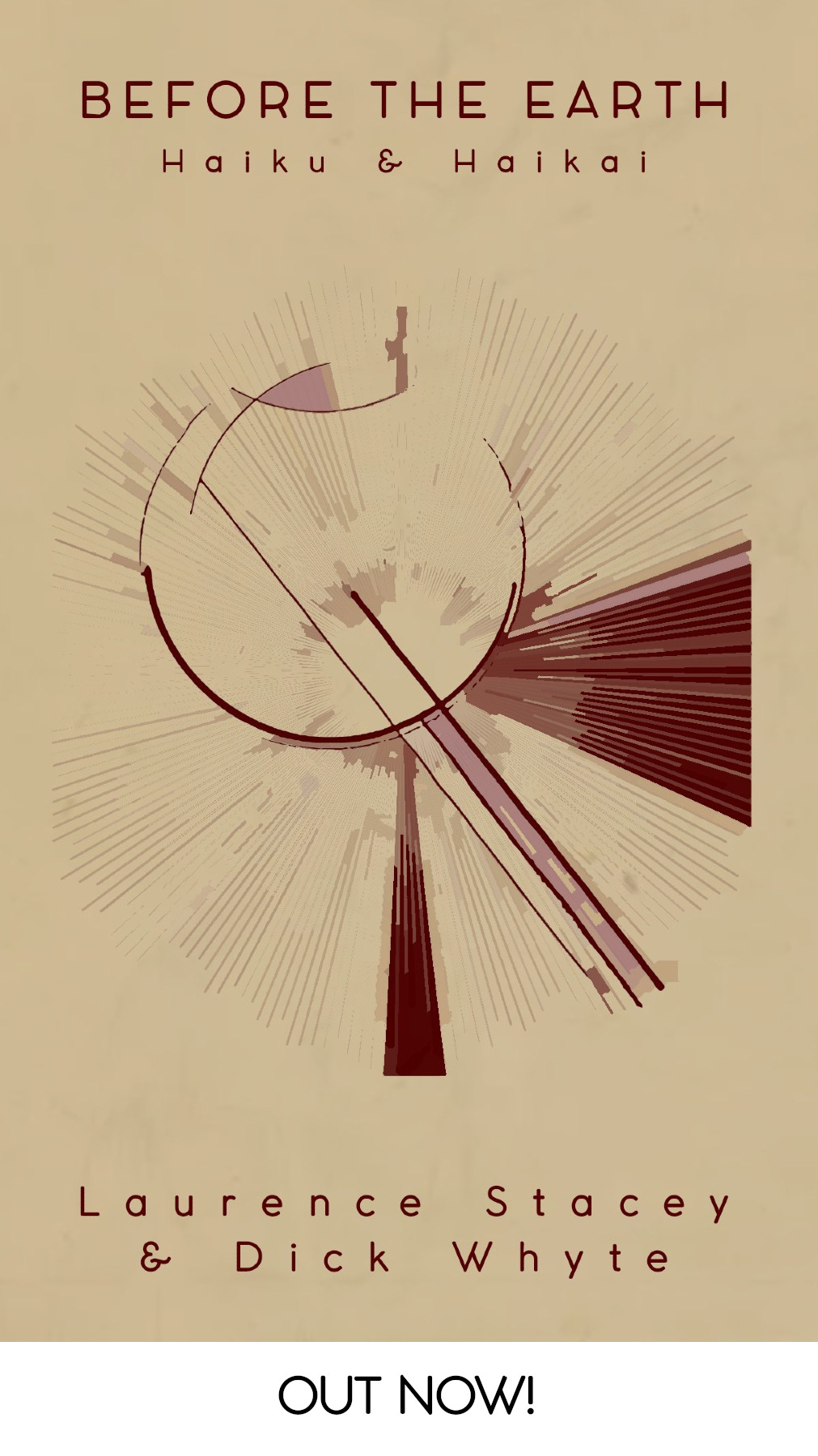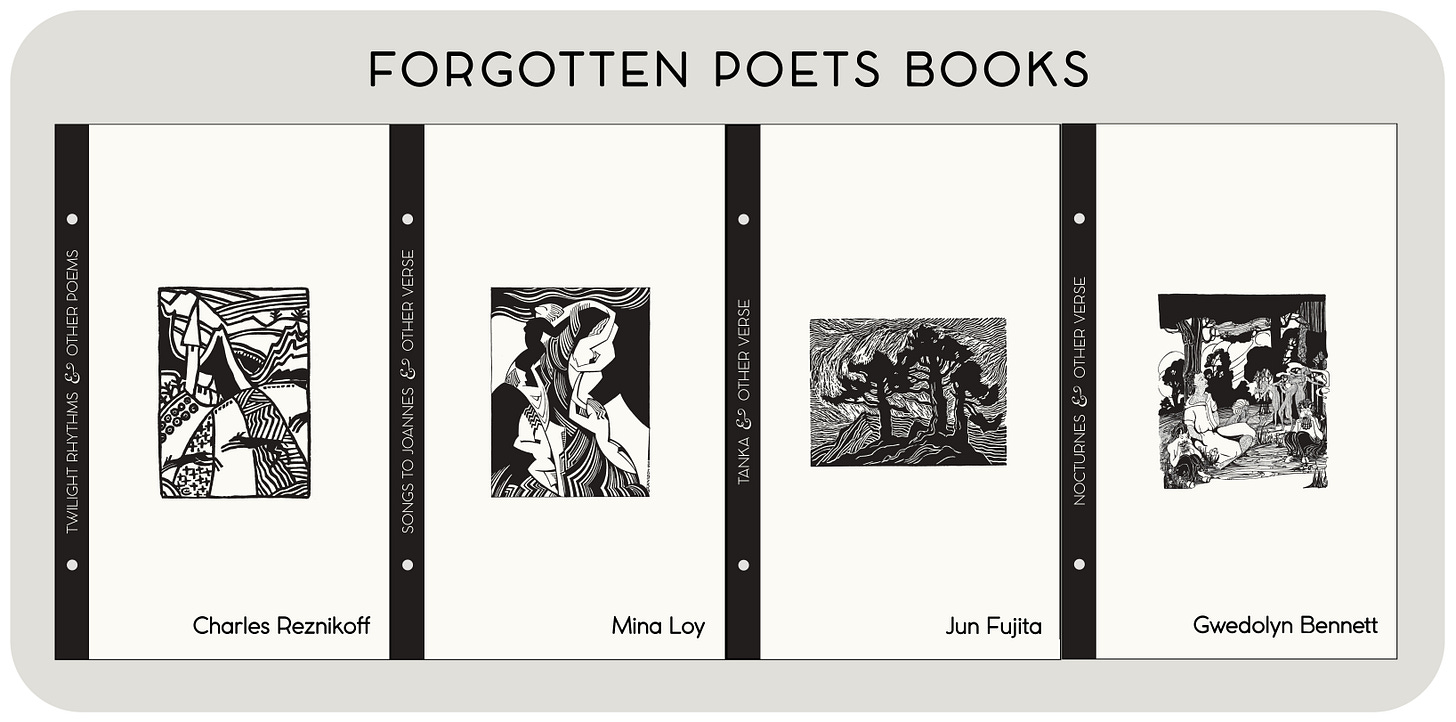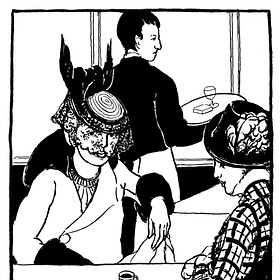— Poem :— love of the silent twilight the benediction that is in your hands moving waters of tenderness on the burning glitter of my madness quiet hands asylum for my bewilderment when phantoms of other worlds seek after me peace to my spent spirit come to me when the day is sleeping still my conflict with your aloofness and I shall be a burst of star-dust to rend the weary curtain of your monotony
—: Paris Roofs :— the tops of roofs over a misty city bring to me faint regrets things lost glimmering that came not to the end but left before it was finished spires of hopes that died strangled and love lost in the fog
—: Invocation :— Sun, come down upon the ground and spread your feet upon its chill. Let them drink you to dregs the cold mountain streams, and the frozen reeds in the river let them bend to your power. Come into the houses of people fill them with heat and with stress. And flow into the pores of the indifferent, energize their meekness— who look for rain and are not content with cloudburst. Sun, do not mistake the indifferent, who walk with loose hands— beat upon them, scorch them and bring to their attention fire and tropic darkness and childbirth under a southern sky.
—: The Liberator :— Keys turning rattling in the loose locks opening high the doors that close again like death-hours coming faster the walls are white and the line of beds is staring all the bars go up and down and none of them lead outward and leaping eyes and stiff limbs follow the crunch of the keys I am powerful now and I will break those that carry the keys with little hammers small hammers which you will make for me and hide in the porridge I will break all their heads and lay them in neat rows and we shall wave high the keys and open wide a million doors and all of us shall dance in the snow and that poor woman in the spiral casket shall warm a wooden doll to her dress and lean her hair in the fire the grating shall be taken from about the fire and the woman and the keys shall go within all of us shall dance within
Emily Holmes Coleman (1899-1974) was born in California, and attended Wellesley College. Moved to Paris in 1926; began publishing poetry in the experimental poetry magazine Transition, and wrote a novel—The Shutter of Snow (1930)—based on her experiences of being institutionalised. Society editor and staff-writer for the Paris Tribune, and at one time secretary to anarchist writer and political-activist Emma Goldman.
Goldman, in Living My Life (1931), recalls: “I started for Saint-Tropez, a picturesque fisher nest in the south of France, in company of Emily Holmes Coleman, who was to act as my secretary. Demi, as she is familiarly called, was a wild wood-sprite with a volcanic temper. But she was also the tenderest of beings, without any guile or rancour. She was essentially the poet, highly imaginative and sensitive. My world of ideas was foreign to her, natural rebel and anarchist though she was. We clashed furiously, often to the point of wishing each other in Saint-Tropez Bay. But it was nothing compared to her charm, her profound interest in my work, and her fine understanding for my inner conflicts.”
“Writing had never come easy to me, and the work at hand did not mean merely writing. It meant reliving my long-forgotten past, the resurrection of memories I did not wish to dig out from the deeps of my consciousness. It meant doubts in my creative ability, depression, and disheartenings. All through that period Demi held out bravely and by her faith and encouragement proved the comfort and inspiration of the first year of my struggle.”
During the summers of 1932 and 1933 Coleman spent time at Hayford Hall in Devonshire, England, rented by arts patron Peggy Guggenheim, and home to numerous poets and artists, including Djuna Barnes, who wrote the novel Nightwood (published in 1936) while staying there.
A Note on “Poem” (1927) by Emily Coleman . . .
The use of blank space in the composition: the “page” comes to life, energising the words. The arresting depths of expression. The use of fragmentation, each stanza both woven into the tapestry and entirely capable of standing-alone as a complete poem in its own right. The haiku-like opening tercet;
love of the silent twilight— the benediction that is in your hands
The rhymed-couplet;
moving waters of tenderness on the burning glitter of my madness
The quatrain;
quiet hands asylum for my bewilderment when phantoms of other worlds seek after me peace to my spent spirit
And the cinquain;
come to me when the day is sleeping still my conflict with your aloofness and I shall be a burst of star-dust to rend the weary curtain of your monotony
Due to Coleman’s play on the structure of growth, gradually building the stanza lengths (3, 2, 4, 5), there is no end-stop, but a suggestion instead: for the reader to “become poet” and continue the pattern . . .
—: After Emily Holmes Coleman :— by Dick Whyte envoi: wind is the wind is the wind and the night is alive as any of us joyously singing in a language so old only the earth understands
Forgotten Poets Presents:
Forgotten Poems, a living anthology of obscure and out-of-print poetry from the late-1800s and early-1900s. Explore the archives:
Josephine Bell - 2 Short Poems (1919)
—: My Comrade :— I am laughing with the smell of the river; I am laughing with the hidden wind swelling up over the lap and shoulders, and winding about the neck of my green world...
More poems about twilight . . .
The Dudley Sisters - 5 Short Poems (1914-1923)
The Dudley sisters were “famous in Chicago’s literary circles for their wit, exuberance, and talent.” (Poetry Foundation, 2024) Dorothy and Helen were poets, Caroline also wrote poetry and worked in the theatre, while Katherine was an illustrator and painter...
More poems about the sun . . .
Charles Erskine Scott Wood - 5 Very Short Poems (1877-1925)
—: Untitled (1877) :— I have seen war. I have heard it. I have smelled it. Even now I am waked from dreams By the stink of bodies Three days dead under the sun. Maggots filled their mouths...












Wonderful, poems and surrounding text both!
I especially like this:
“Sun,
come down upon the ground
and spread your feet upon its chill.
Let them drink you to dregs
the cold mountain streams,
and the frozen reeds in the river”
and won’t forget it. At the same time, it’s disjointed, do you agree? Unless I suppose the dregs are each day’s dregs of sunlight at the end of the day, rather than the sun’s light itself.
But I find myself both caught by the image and frustrated by it, which means that it has added something.
'wind is the wind is the wind
and the night is alive
as any of us
joyously singing
in a language so old
only the earth
understands'
LOVE this Dick!!
More.